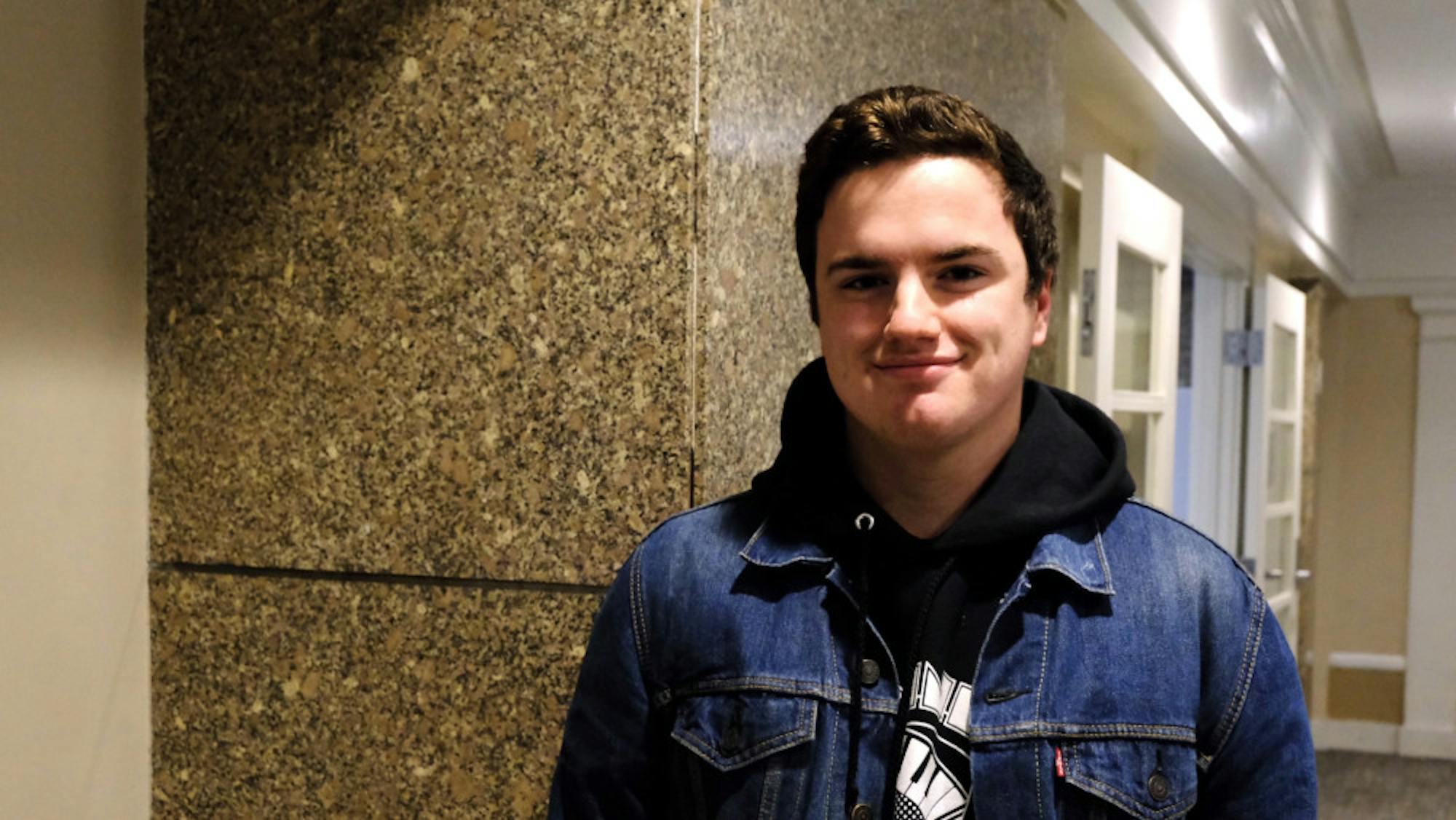Editor's note: The original version of this article was published on Feb. 28. This version has been updated to reflect ongoing developments.
Last week, the university identified the members, including two undergraduate students, who will comprise the Responsible Investment Advisory Group (RIAG), which is tasked with reviewing Tufts’ investments in the fossil fuel industry.
The RIAG members will consist of the following: Charming Dube, a senior and non-voting student representative on the Board of Trustees' Administration and Finance Committee; Temple Miller-Hodgkin, a sophomore and member of Tufts Climate Action; Katherine Sulka, a third-year Ph.D. candidate at the Graduate School of Biomedical Sciences; Robert R. Gheewalla (LA'89), trustee and chair of the RIAG; Steven M. Galbraith (LA'85), trustee emeritus; Douglas A. Rachlin (LA'85) and Lori Roth (J'86), both trustees; Sally Dungan, Tufts' chief investment officer; James Hurley, vice president for finance and treasurer ad interim; Paul Joseph, chair of the sociology department; Dan Richards, chair of the economics department and Barbara Kates-Garnick, a professor of practice at the Fletcher School of Law and Diplomacy.
Patrick Collins, Tufts' executive director of media relations, confirmed that the group's members will explore Tufts’ fossil fuel investments, their implications for climate change and consider divesting the university’s endowment from the fossil fuel industry.
In January, Tufts decided to convene the RIAG, which the Board of Trustees voted to establish in November 2019, following nearly seven years of student advocacy for fossil fuel divestment in addition to a formal proposal submitted by members of Tufts Climate Action (TCA) that called on Tufts to join more than half a dozen of its peer institutions in divesting its endowment from fossil fuels.
Nadine Aubry, Tufts' provost and senior vice president, nominated the investment advisory committee’s student and faculty member representatives, deviating slightly from the Board's policies relating to the group's membership, which only calls for two student representatives.
Executive Vice President Mike Howard, who is serving as a liaison for the RIAG, explained that the administration decided to add an additional student representative in order to include more voices in the review process.
“In response to strong arguments by some students and faculty members that this issue deserved wider representation, we petitioned for a one-time exception to the group’s make-up in order to expand student and faculty membership on the RIAG,” Howard wrote in an email to the Daily.
The Tufts Community Union (TCU) Senate on Feb. 9 amended its bylaws to require that the student representative sitting on the Board of Trustees’ Administration and Finance Committee should serve as the undergraduate student representative for the RIAG, should it convene at any point during the year.
TCU President Shannon Lee explained the amendment was born out of a conversation with Aubry and University President Anthony Monaco, who both expressed that the RIAG’s review process might be made more efficient if it incorporated a student who was already somewhat familiar with how the Board of Trustees operates.
“[The Administration and Finance trustee representative] knows the confidentiality rules, they know how to conduct themselves and they were elected by TCU Senate,” Lee said. “So we decided that the student trustee representative would be the most suitable person to sit on the committee.”
The Board of Trustees, however, has yet to codify TCU’s amendment into its policies relating to the RIAG’s composition. As of now, the policies only call for including when possible a student associated with the sponsored proposal around which the RIAG is convening.
Members of TCA still worried that TCU’s amendment would prevent a student who was connected with its divestment proposal from being nominated to the RIAG, and took action accordingly.
“TCA is relieved that Temple Miller-Hodgkin will be serving on the RIAG because it was initially unclear if the administration would honor the RIAG’s intentional design and appoint a student associated with the divestment proposal,” Hanna Carr, a senior and co-author of the TCA proposal, wrote in an electronic message. “When we became aware that TCA might be excluded from the RIAG, we expressed our concerns to the administration, who promptly responded by expanding the undergraduate representation by appointing both [Dube] from TCU Senate and [Miller-Hodgkin] from TCA.”
Both the date of the group’s first meeting and the extent to which students and the general public will be informed of the progress of the RIAG’s review while the process is ongoing remain unclear.
“The group will begin meeting soon, and at that first meeting will decide such matters as frequency of meetings, the process for review, how to communicate the progression of its work, and other relevant matters,” Howard wrote in an email to the Daily.
Tufts appoints members to investment review committee, considering fossil fuel divestment

Temple Miller-Hodgkin poses for a portrait in Carmichael Hall on Feb. 27.





